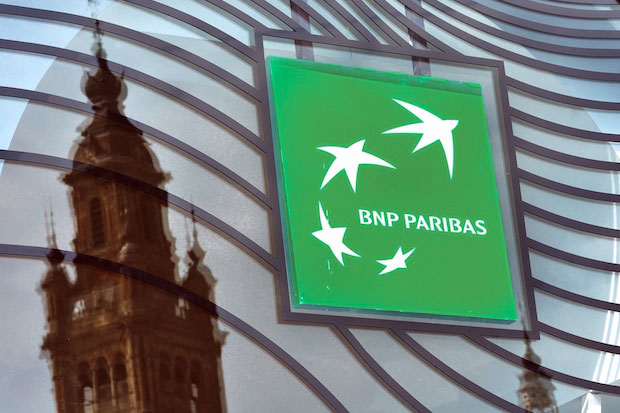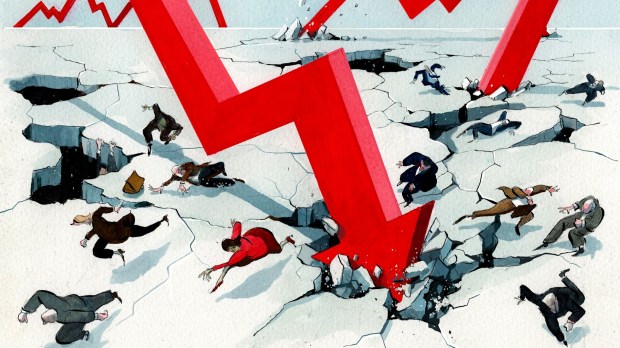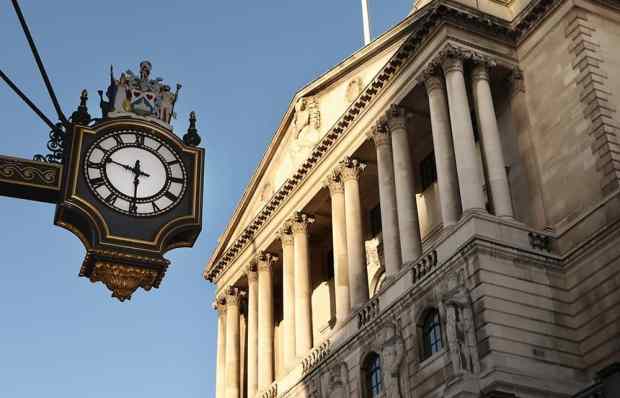Here’s one for all you conspiracy nuts out there, prompted by readers’ comments on my recent item about whether BP has been unjustly targeted by the US political and judicial establishment. I gather there’s a theory that the hounding of non-US banks by the US Department of Justice for sanctions-busting and trading misdemeanours has a more sinister foreign-policy impetus behind it. Notably — according to Conflicts Forum, a website I’m told is breakfast reading for trainee spooks — the $9 billion fine imposed by US authorities on BNP of France for financing trade with Iran, Sudan and Cuba may also have been intended to punish the French for refusing to cancel their contract to build two Mistral-class amphibious assault ships for the Russian navy, about which I wrote in August.
Described by French foreign minister Laurent Fabius as ‘unfair and unilateral’, the BNP fine was announced shortly before Barack Obama’s June visit for talks with François Hollande — and Vladimir Putin later told an audience of Russian officials that the Kremlin knew exactly what was afoot: ‘We even know [the Americans] hinted that if the French don’t deliver the Mistrals, they would quietly get rid of the sanctions against the bank, or at least minimise them. What is that if not blackmail?’
Likewise, timely revelations in the Wall Street Journal in July of an investigation of Deutsche Bank’s US operations by the Federal Reserve Bank of New York, uncovering ‘a litany of serious financial reporting problems’, might have been a ‘tap on Angela Merkel’s shoulder, reminding her to vote “yes” on the next round of Russia sanctions’, says Conflicts Forum. No fine was applied but there was a threat of restrictions on Deutsche’s US activities, which make up a quarter of its global portfolio — and an implied warning to the rest of German business that has sought to protect €36 billion of Russian trade.
There is, of course, another side to this story: the DoJ and New York regulators have been at least as zealous in pursuit of their own banks. An FT survey earlier this year counted $84 billion of fines against domestic US banks since 2007, compared to $15.5 billion against foreigners. Among the latter were HSBC for money laundering, UBS for Libor manipulation and tax evasion, and Standard Chartered and ING for sanctions-busting — none of which seemed to carry ulterior geopolitical motives. So who knows where the truth lies. But if the White House is really willing to deploy its financial Rottweilers to put the frighteners on reluctant allies, we’re certainly seeing an example of joined-up government.
Tesco’s woes
How far and how fast can Tesco fall? After the revelation of a £250 million cock-up in the supermarket group’s first-half profit forecast, its shares plunged — and have now halved in value in the past year, in response to a series of bad-news stories and boardroom upheavals. As corporate crises go, this one is a corker: the chief executive has only been in the post for three weeks, the finance director’s office was vacant at the crucial moment, four senior managers have been suspended, and the chairman (ex-Treasury official Sir Richard Broadbent) keeps making crass remarks like ‘Things are always unnoticed until they are noticed’ and ‘Shareholders will have to decide whether I am part of the problem or part of the solution’.
That choice may be one of the easier ones for the company to make in coming months: a business in such obvious disarray faces hostile conditions on all sides, from stock-market predators and rampant competitors to a demoralised exodus of the up-and-coming talent that would otherwise be its best hope of recovery.
But we should not forget that Tesco commands almost 30 per cent of its UK market, equal to Asda and Morrisons combined, and that its tired, oversized and unloved stores are as much part of our national infrastructure as the stations of Network Rail. ‘Look forward ten years and I predict Tesco will be a has-been,’ I wrote in January, and I’ll stick to that. The demise of this icon of late 20th-century consumerism will be painfully slow.
Grit versus gloss
I sometimes worry that this column heaps too much praise on the old and the dead, as a by-product of my role elsewhere as a professional obituarist. But the lives and personalities of corporate chieftains, particularly the self-made, never cease to fascinate me — and I was naturally intrigued by a Sunday Times poll of ‘Britain’s most admired business leader of the past 50 years’, which forms part of this week’s 50th birthday celebration of the paper’s stand-alone business section. Responses were gathered from chairmen and chief executives of FTSE companies and professional firms, and the winner turned out to be none other than Sir Richard Branson — once regarded with deep suspicion by the City, often loathed by his rivals, but now respected by many observers (including me, but not his double biographer Tom Bower — see Diary on page 9) for his stamina and smart management of the Virgin brand.
What’s interesting about this survey’s ‘top 10’ is that it can be divided into two distinct groups. The first’s success was inseparable from their highly polished public images: Branson, James Dyson, Dame Anita Roddick of the Body Shop, Lord Browne of BP and Sir John Harvey Jones of ICI, who became television’s ‘Troubleshooter’.
The second are grittier, lower-profile, long-term business builders: Lord Weinstock of GEC, Sir Martin Sorrell of WPP, Sir Ernie Harrison of Racal and Vodafone, Sir John Rose of Rolls-Royce, and Sir Terry Leahy of Tesco in happier days. Today’s business practitioners might have been expected to admire the second set as serious role models, well ahead of the PR gloss of the first. But the result also reflects the way business journalism (Sunday newspapers to the fore) has made itself so much livelier and more accessible over the past half-century: the cult of celebrity is everywhere, and we hacks must take our share of the blame.
Got something to add? Join the discussion and comment below.
Get 10 issues for just $10
Subscribe to The Spectator Australia today for the next 10 magazine issues, plus full online access, for just $10.
You might disagree with half of it, but you’ll enjoy reading all of it. Try your first month for free, then just $2 a week for the remainder of your first year.
















Comments
Don't miss out
Join the conversation with other Spectator Australia readers. Subscribe to leave a comment.
SUBSCRIBEAlready a subscriber? Log in